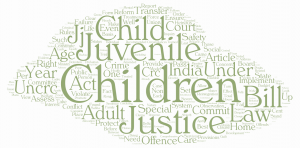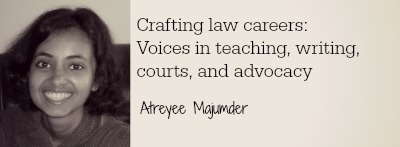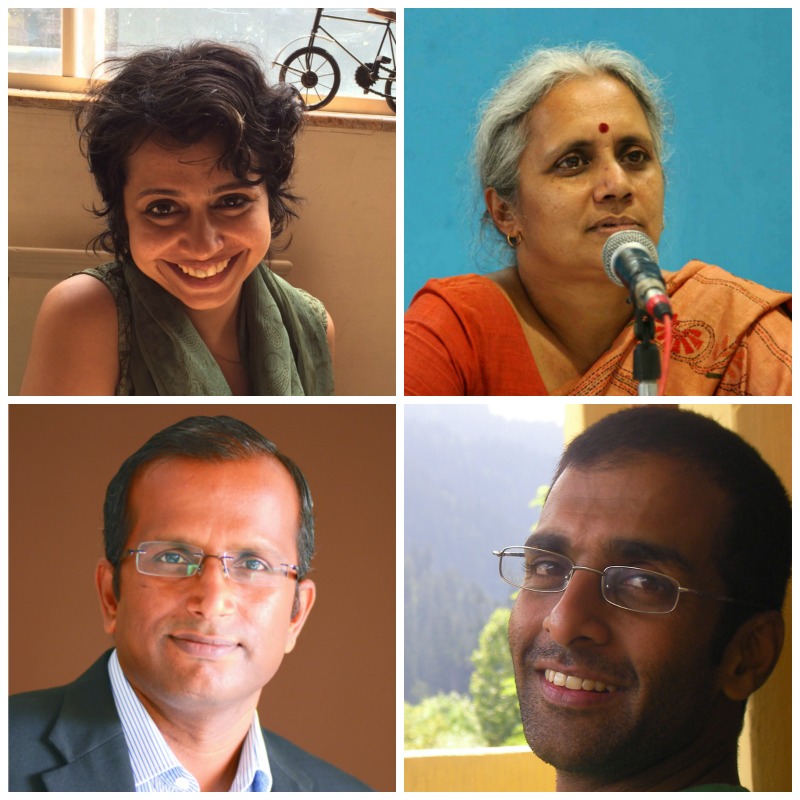 As online resources become the primary tool for legal research, some basic rules will help avoid common pitfalls.
As online resources become the primary tool for legal research, some basic rules will help avoid common pitfalls.
1. Have a research plan
We have all gone online to look up one thing and ended up some time later reading or watching something completely unrelated. It is easy to lose track of where you are up to and even what things you have already looked at.
To deal with this, you could maintain handwritten notes or keep notes on a separate document open on your computer. List the websites that you have been to and keep track of the sources you want to come back to. Many subscription services, such as Manupatra, even provide a function where you can save all or some of your search results.
Also remember that when you use search engines like Google, Yahoo!, and the like to find resources, you need to follow a research plan. If you do not know what you are looking for, then a general Internet search is probably going to result in you wasting more time, rather than finding anything useful. In those cases, it’s better to start with a general text or other treatise on the subject. However, if you do know what you are looking for—a specific case or author, for example—then you may find online, exactly what you need, very quickly.
A note of caution here—if you are presenting a research paper in law school, for example, do not simply rely on the contents of what comes up in the first one or two pages of a Google search. If you do, you will likely find that your research is no more extensive (and almost identical) to that of many other students in your class.
2. Identify the correct search terms
One of the key steps of legal research, whether online or offline, is generating the right search terms.
Keep a note of key words that come to mind as you are analysing the legal problem. It is easier to generate key search terms by keeping in mind categories of information such as the parties, the places and things involved in the case, the potential claims or cross-claims and defences, the conduct of the parties, and the injury or harm suffered.
 It helps to start with broad search terms and to narrow them down as your research proceeds, especially if you are researching an issue in an unfamiliar area of law. You can narrow the search terms down once you are sure you are on the right path. Looking at the results from broad search terms and reconsidering the research issue before you, will help you generate narrower search terms.
It helps to start with broad search terms and to narrow them down as your research proceeds, especially if you are researching an issue in an unfamiliar area of law. You can narrow the search terms down once you are sure you are on the right path. Looking at the results from broad search terms and reconsidering the research issue before you, will help you generate narrower search terms.
Remember, in online research, you may have to play around with several search terms to ensure that you are aiming your research in the right direction. Starting with a simple one-word Google search is most likely going to be useless, or at least a waste of time.
The increased use of technology has also changed the legal research landscape in many ways. We now have access to a wider variety of authorities, both within and from outside any jurisdiction. This makes the analysis of information and critical thinking about the law even more difficult and we need to be able to do more than enter queries into search engines. We need to be able to access, sort, and analyse information intelligently and in a continuously flexible fashion.
It might actually be more helpful to begin with a general textbook or other print resource if you are doing research in an area that you are unfamiliar with. Something as simple as scanning a table of contents might help you frame a more effective search term, find the leading case or main statute, or help you narrow down the areas you need to look into further.
3. Know when your research is sufficient
When do you know that you have done enough research? Efficient research requires knowing not only how and where to begin research, but also having an idea of where to draw the line in the research process. No matter what form of research you are doing, you will need to learn to recognise when to stop your research and collate it.
The challenge with legal research these days is to find the information that you need from amongst the massive amount of information available online. Any search that you conduct turns up hundreds, or thousands, of results. Often two practical considerations will limit your research: namely economics (or the costs involved), and the time you have to complete your research.
When you are given a topic to research at work, it is important to evaluate the stakes that are involved. If it is a legal opinion for a client, then you need to decide beforehand, the amount of information your client would require at that stage. If your firm is billing the client by the hour, the research can be endless but time is an important factor that will dictate the conclusion of your research.
Apart from these practical considerations, the findings of your research may by themselves indicate when you need to stop. It is highly unlikely, for example, that you will find a case with facts identical to your case, but if you have found a case with similar legal issues, and from a superior court in your jurisdiction, in short, a case that is ‘on point’, then you can probably safely end your research on that issue. Another indication that your research is complete is when you begin bumping into the same authority repeatedly.
4. Ensure the information you find is credible and accurate
One of the biggest challenges in online research is ensuring the credibility of your sources and the accuracy of the information you get.
 In the case of primary sources, for example, you might wonder how you know whether the legislation that you are reading is the most up-to-date version. The variety of secondary sources presents even greater difficulties. You might find an article but how do you know whether the person who has written it is credible, or has sufficient knowledge in the area so as to be reliable?
In the case of primary sources, for example, you might wonder how you know whether the legislation that you are reading is the most up-to-date version. The variety of secondary sources presents even greater difficulties. You might find an article but how do you know whether the person who has written it is credible, or has sufficient knowledge in the area so as to be reliable?
Often, you will not be able to confirm the veracity of your sources but you can, however, ensure that you choose more popular sites more often, and rely on those sites, services, and authors that are generally considered credible. Use your common sense—it might be okay to present a blog post as evidence of someone’s opinion, but unless the author is an established expert in the field, it is probably not a good idea to rely on that opinion as truth or authority, or as a way of establishing something as a fact.
Most departments of the government and government bodies such as courts and regulatory bodies have websites. While some are better than others, many of them contain a wealth of information. Legislation and the judgments from most superior courts in India are available online. The versions of judgments and statutes that you find on these websites are usually reliable as they are published by the very body that produced or authored them. When conducting research on areas of international law, take the time to find the official government websites.
A note of caution here—unfortunately in India, government websites are often not updated to reflect the most current statute. You will often find old versions. Always combine your research on government websites with research on paid subscription resources or even a recent printed text to be sure that you are relying on current legislation.
Databases hosted by universities and other higher learning institutions are often excellent sources for authoritative journal articles.
Then, there are unofficial websites that focus on law and legal research. By ‘unofficial’, we mean those that are not hosted by a recognised governmental department or established university. Just keep in mind that you may need to back up or check your research with a more credible source, or with a print resource, depending on what you are researching and the kind of audience your research will be presented to. Some free, popular and useful websites for Indian law resources on the Internet are JUDIS, Google Scholar, and IndianKanoon.
In addition, there are subscription databases that you will only have access to if you, your firm, university, or company has a paid subscription. These databases, such as Manupatra, LexisNexis, and Westlaw, include judgments and legislation, and many also offer a significant database of scholarly articles and textbook-style material. Each of these databases is presented and used differently, so you do need to ensure that you learn how to use them properly to research efficiently and effectively.
To conclude, as with most aspects of legal research, online research takes practice and some patience. We should not make the mistake of thinking that, because we are all so familiar with the Internet these days and use it constantly, that online legal research will be similarly easy or familiar. Take some time to learn about the different resources that are available, and familiarise yourself with the various search techniques that you need to use across those resources. As you develop your research skills, you will become familiar with the sites that you consider most reliable and simple to use. By relying on those sites and databases that you trust, as well as constantly being on the look out for new resources, you will always have the information that you need at your fingertips.
Deeksha Singh is part of the faculty at myLaw.net.



